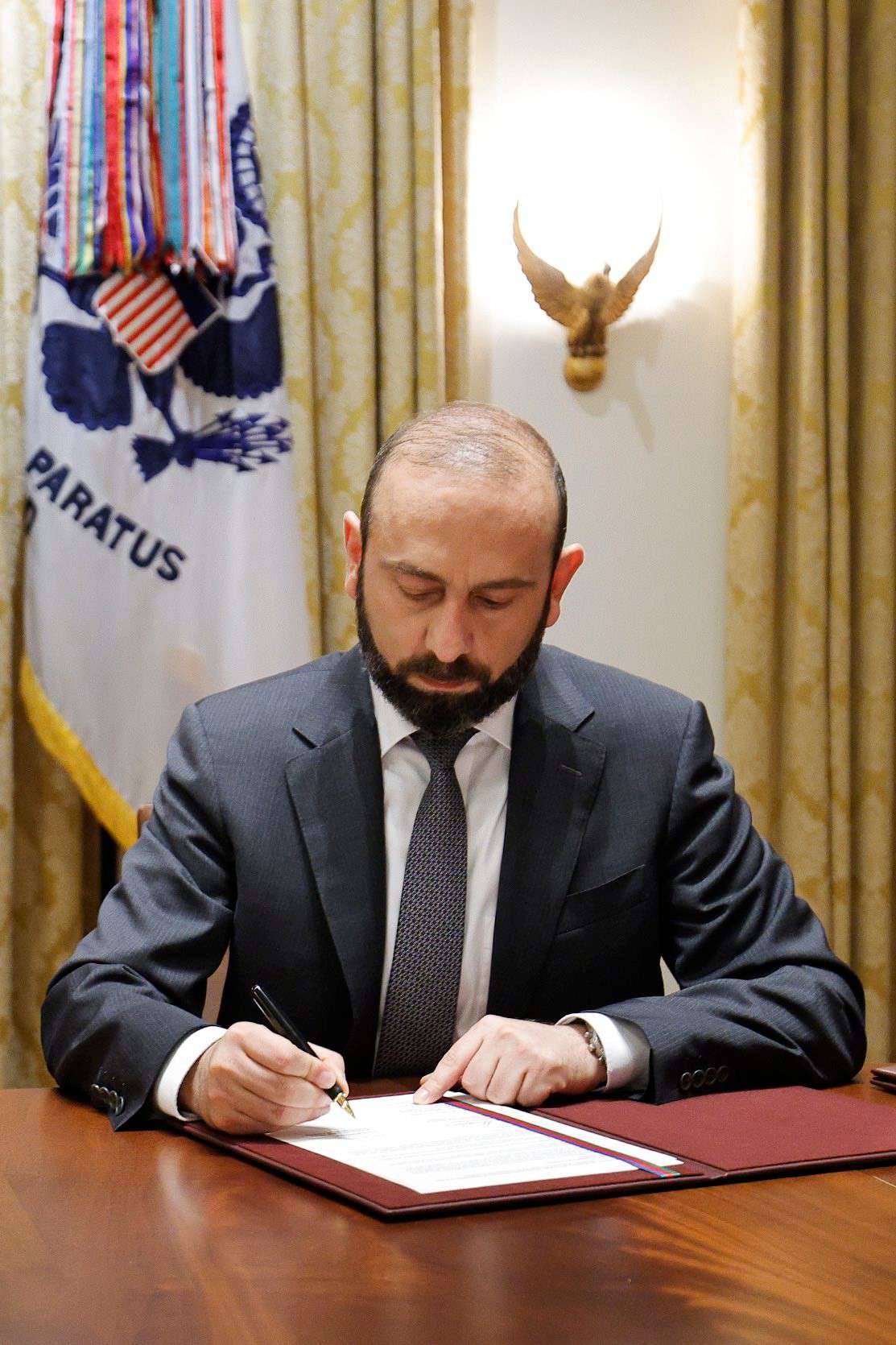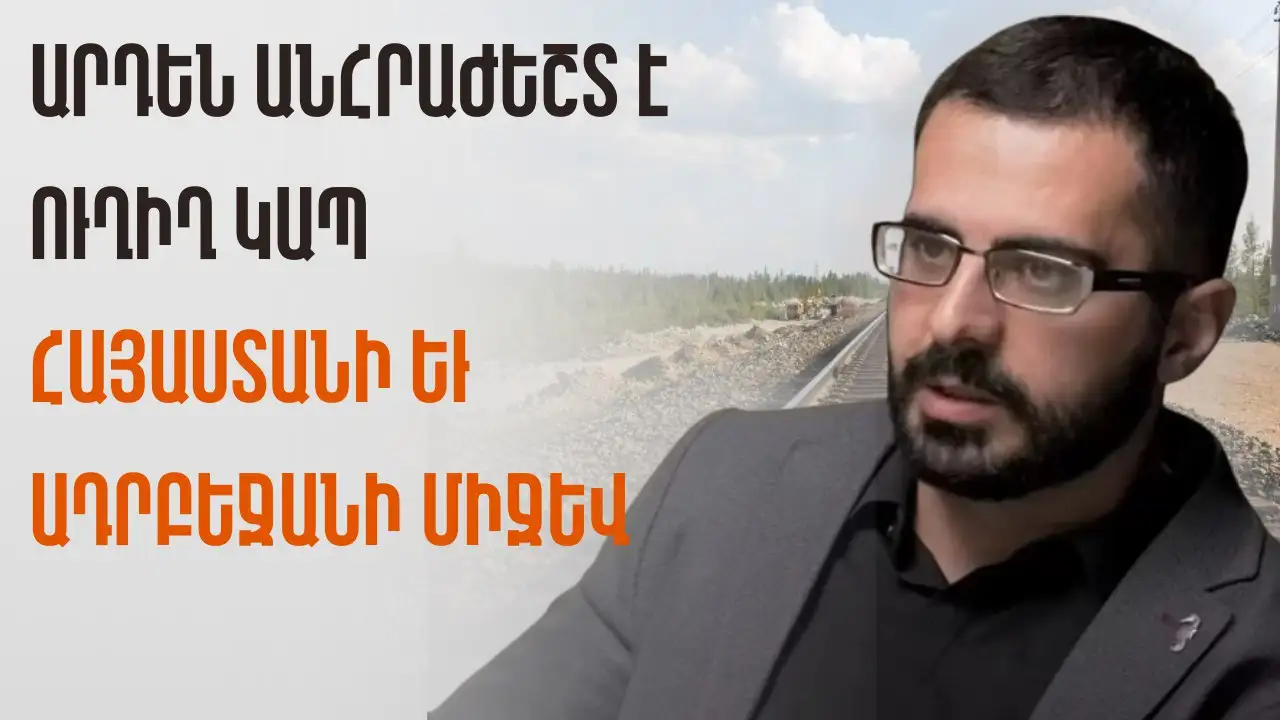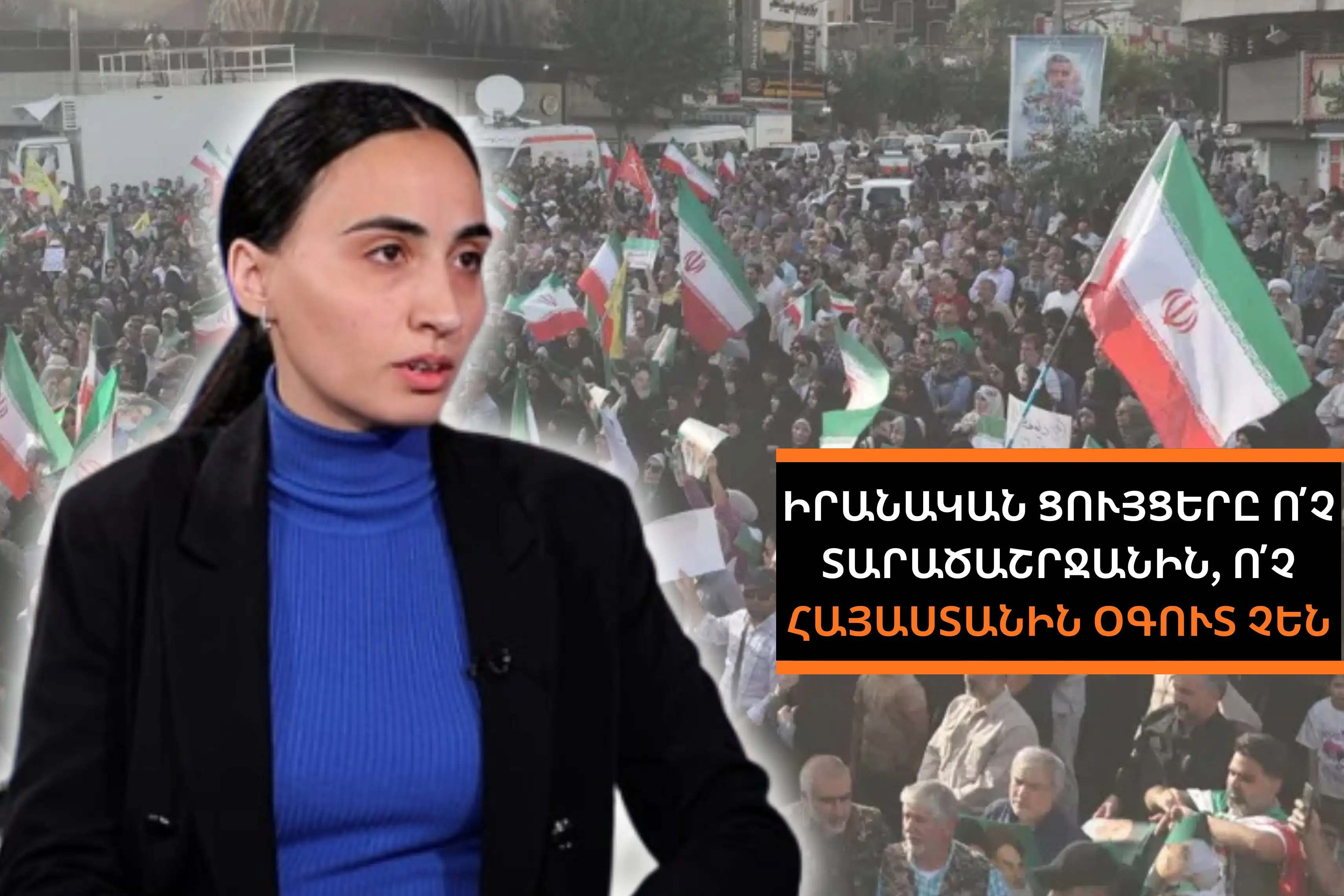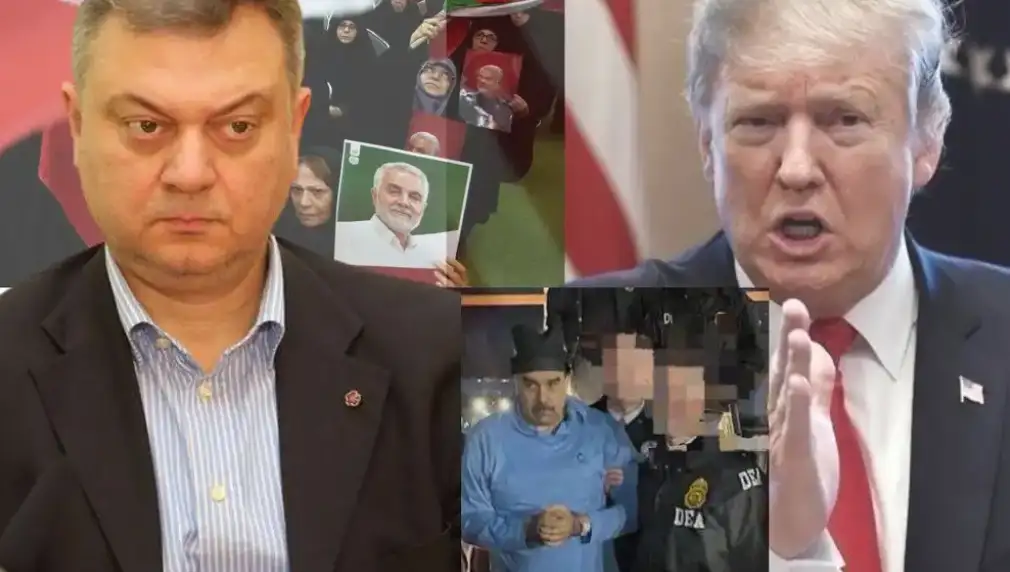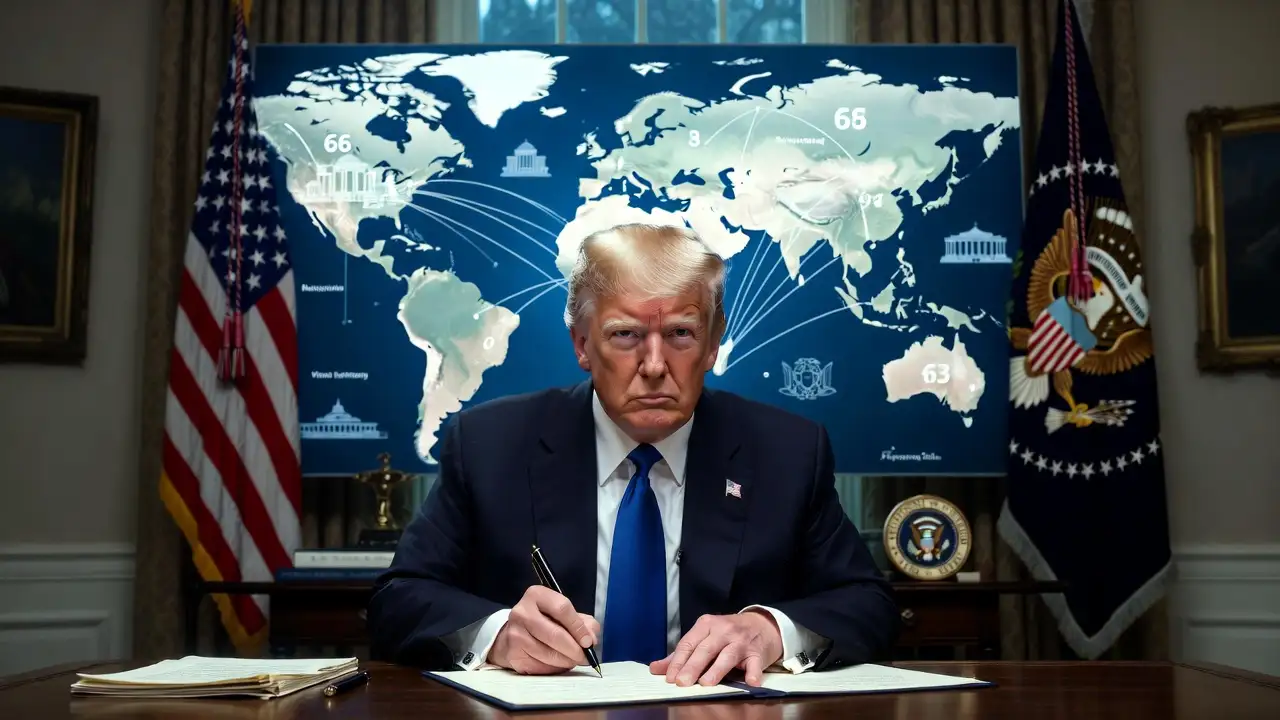RA Foreign Minister Ararat Mirzoyan considers the event that took place in the White House to be historic, especially in terms of the initialing of the Agreement on Peace and the Establishment of Interstate Relations, which, in his opinion, is a significant milestone in the process of normalizing relations between Armenia and Azerbaijan. According to him, the initialing of that agreement marks the beginning of the stage of institutionalizing peace.
RA Foreign Minister Ararat Mirzoyan said this in an interview with "Armenpress", referring to the results of the Washington meetings.
Question: How do you assess the results of the meetings in Washington?
Answer: If briefly, what happened in the White House was, of course, a historic event. First of all, the initialing of the Agreement on Peace and the Establishment of Interstate Relations was a significant milestone in the process of normalizing relations between Armenia and Azerbaijan. With that initialing and the subsequent verbal public statements, it was announced that peace in the sense of the absence of escalations on the border has already been established and the stage of institutionalization of peace is beginning.
By and large, the same can be said about the lifting of the blockade and the resumption of infrastructure. I would not like to create the wrong impression: the critical, fundamental stage of negotiations on the general principles of the operation of infrastructure has ended, but only one stage. There is a tremendous amount of work ahead to clarify and agree on more specific conditions and technical solutions.
The agreements recorded in the Washington Declaration gain even greater weight with the participation of the American side in it and the signature of the US President as a witness.
Question: Speaking of infrastructure, experts and representatives of various political currents offer different interpretations, especially around point 3 of the Washington Declaration. What is your perception?
Answer: But there is no room for different interpretations. What is written is agreed upon; what is written should be read and understood as it is written, no more, no less. And it is written that the operation of infrastructure, including that to be built in the territory of Armenia with American partnership, takes place within the framework of the territorial integrity, sovereignty, and jurisdiction of the countries and ensures mutual advantages. Again, whatever the technical solutions that still need to be discussed, they cannot be outside the framework I have mentioned.
The remaining interpretations are a product of imagination or an attempt to mislead people. One can only be surprised at how, with the persistence of a famous animal, some "independent experts" or "dependent" party members circulate terms that, in essence, have never been accepted by us before, and are now not in the Washington Declaration. I want to reiterate what is clearly stated: all infrastructures will operate within the framework of the sovereignty and jurisdiction of the countries, with no third-party control. It is impossible to say more clearly than this.
But I propose to record another significant, cornerstone fact. With the agreement reached by the Washington Declaration, Armenia is being unblocked, something that has been the aspiration of the Republic of Armenia for 35 years. Armenia now gains access and can use Azerbaijan's railway infrastructure for its international trade.
Question: There are also speculations regarding the Peace Agreement.
Answer: We have had to say many times in the past that the content of the Peace Agreement is mainly known to the public, we have noted what is in it and what is not. On August 11, as we agreed with the Azerbaijani side, the text of the initialed agreement will be made public. With the assumption of common sense, from that moment on, all speculation will stop.
Question: During the visit, bilateral meetings were also held, and memoranda were signed. What does this mean, including for the RA-US strategic partnership?
Answer: Indeed, the visit was also important from the point of view of promoting RA-US bilateral relations. During the Pashinyan-Trump meeting, it was possible to discuss several issues on the strategic partnership agenda, and three memoranda were signed.
The "Crossroads of Peace" Capacity Development Memorandum expresses US support for the "Crossroads of Peace" project, emphasizes Armenia's vital role as a regional transport hub, and reaffirms the United States' unequivocal support for Armenia's sovereignty, territorial integrity, and the inviolability of its internationally recognized borders. It is aimed at promoting Armenia's infrastructure and border security. It includes encouraging private investment and strengthening customs and border capabilities.
The Memorandum on Artificial Intelligence and Semiconductor Innovation aims to significantly deepen cooperation in the field of high technologies, developing the semiconductor ecosystem and artificial intelligence applications. It emphasizes the importance of private investment, public-private collaboration, and academic partnerships. The parties undertake to promote workforce training and strengthen technological alliances. The parties also intend to work to achieve the necessary conditions to improve Armenia's status within the framework of US export controls.
The Energy Security Memorandum aims to support Armenia's energy stability and modernization of the energy system, encourage private sector investments, and develop civil nuclear cooperation.
The Memorandum also envisages promoting regional energy cooperation and developing professional capabilities, strengthening Armenia's energy self-sufficiency.
We have agreed with US Secretary of State Marco Rubio to intensify joint work shortly to implement the above and other components of the strategic partnership.
In conclusion, months of meticulously planned work have been carried out to reach this milestone, and at this stage, the scope and content of the work must be further expanded. Yesterday, President Trump signed an executive order establishing a task force to implement the Trump Way for International Peace and Prosperity. We expect high-level discussions in Yerevan shortly to leverage this critical moment and work towards a more interconnected South Caucasus for future generations.




